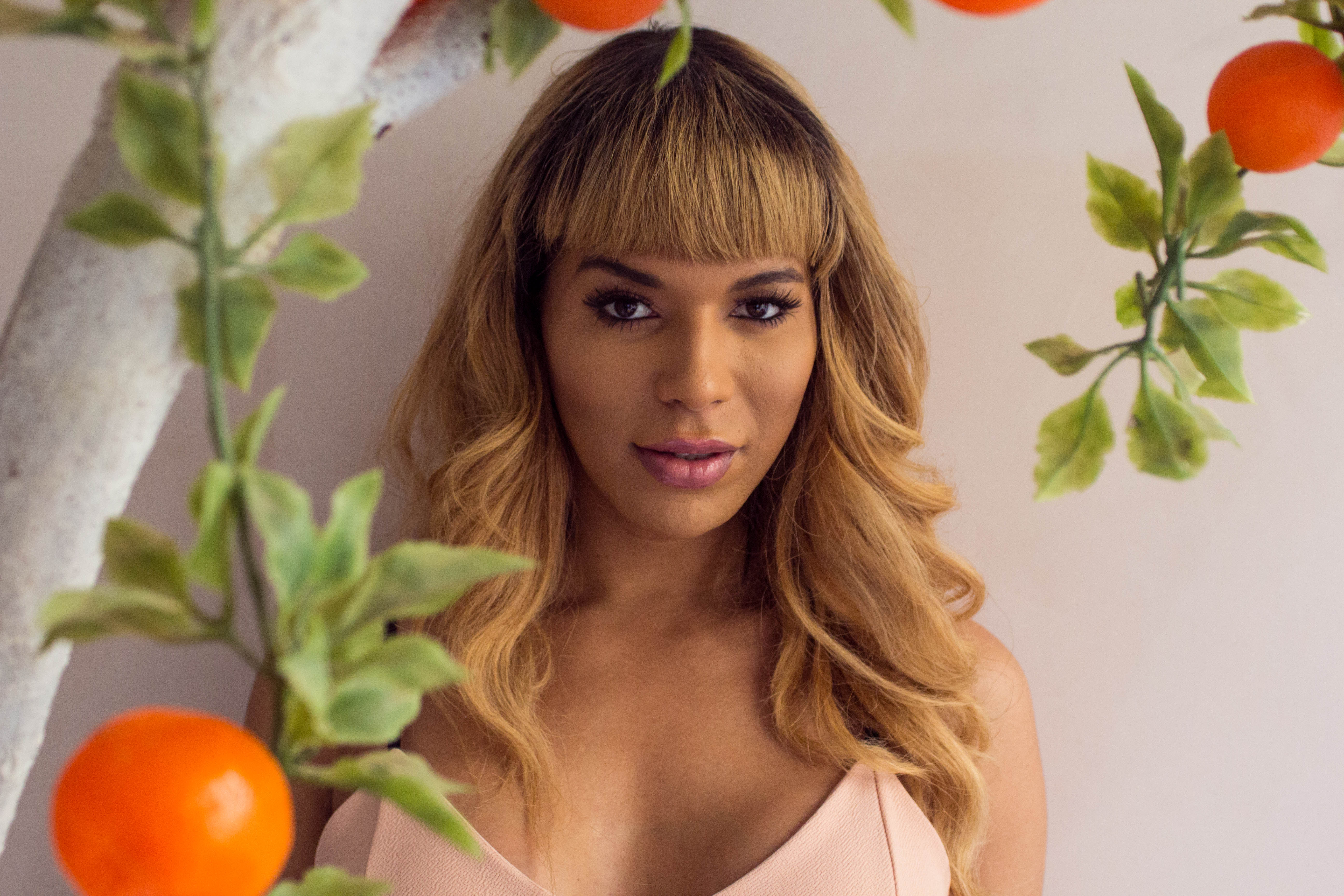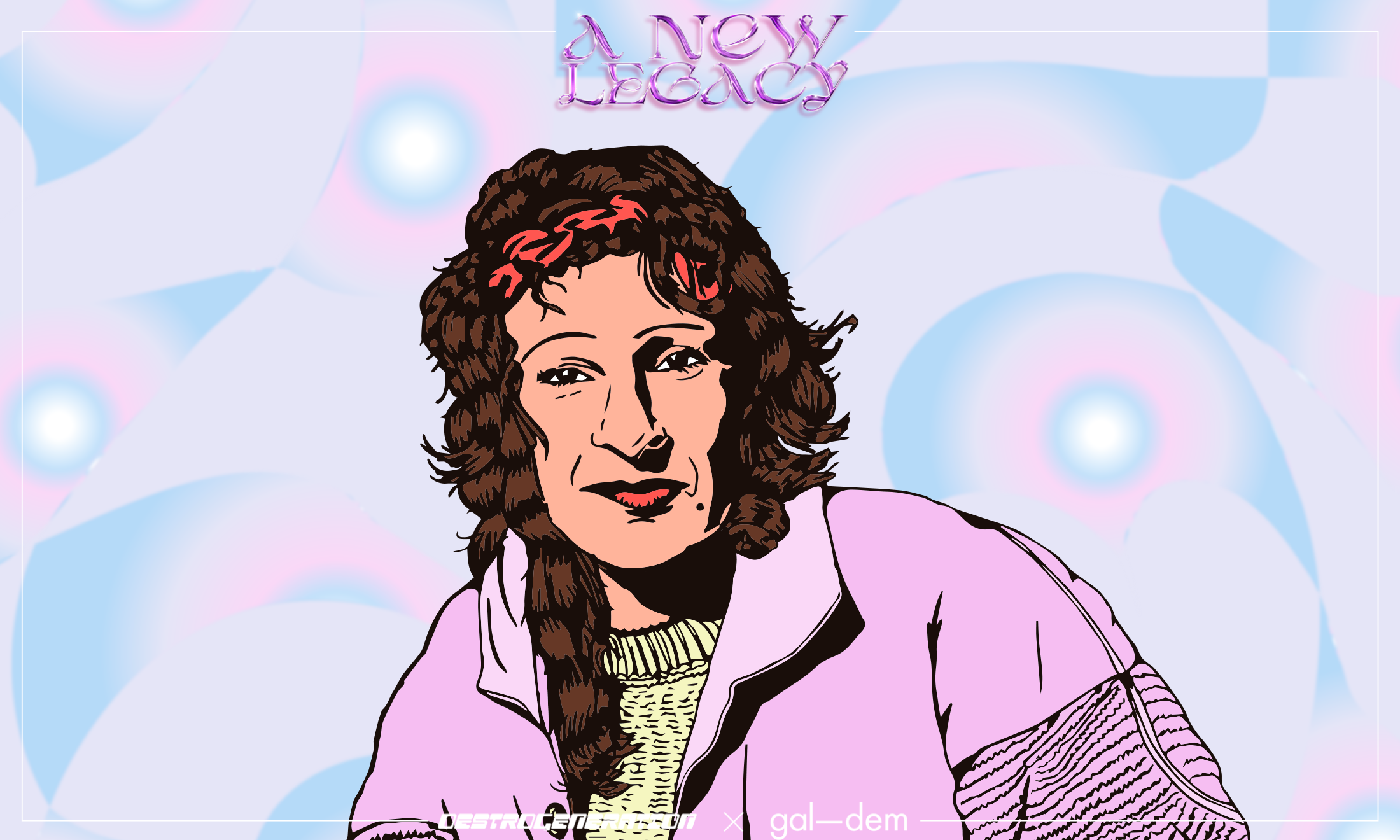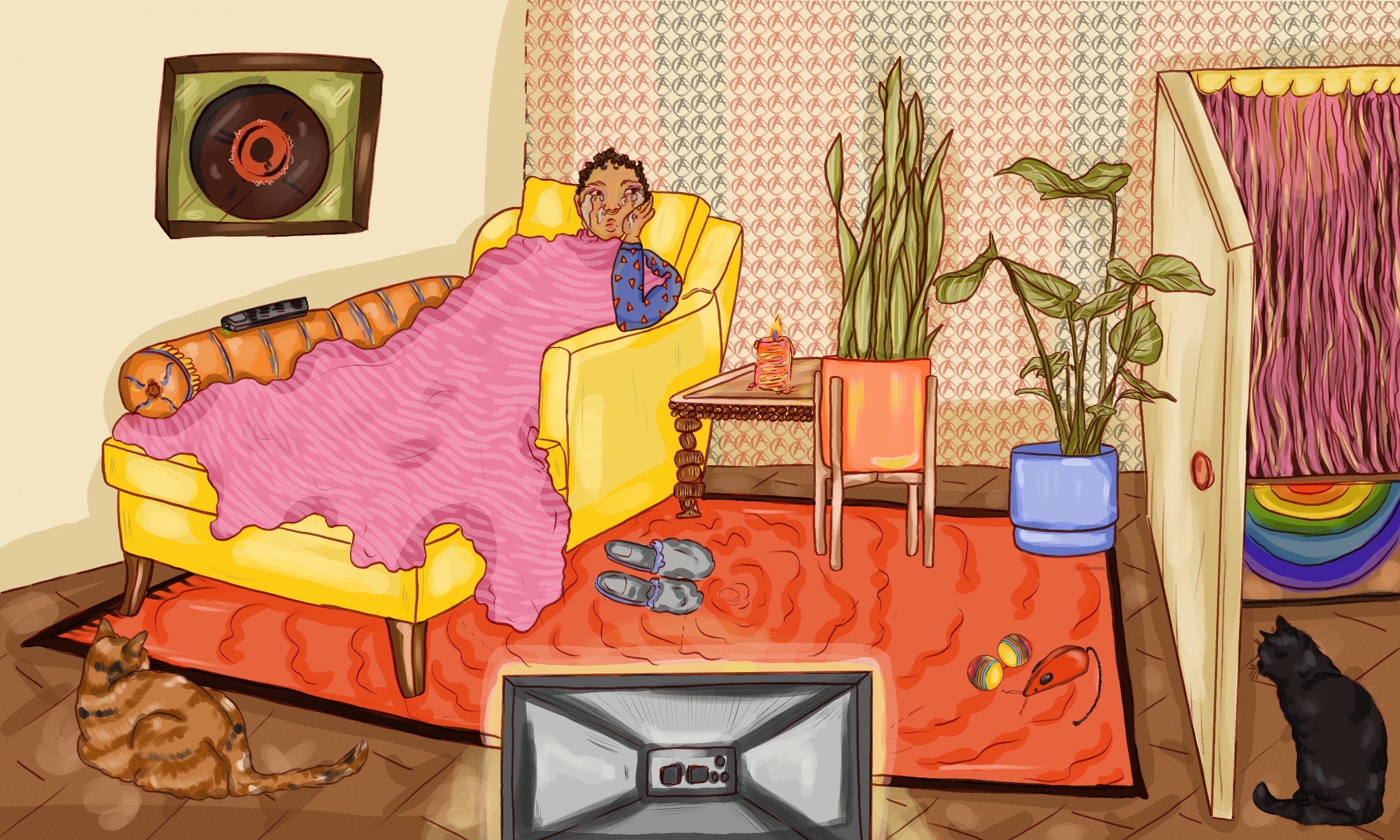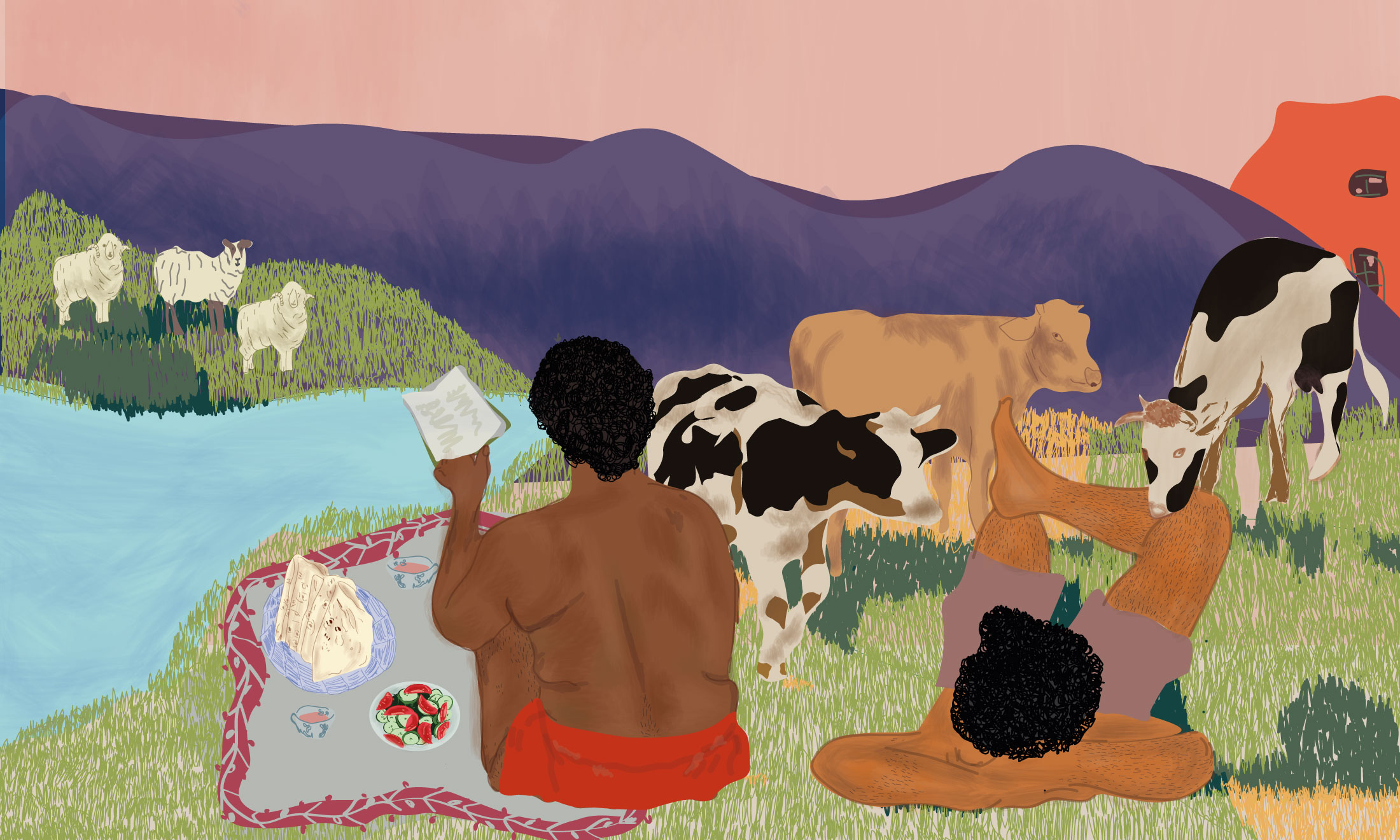
The narrative of girlhood – growing up as a girl – is often centred on the experiences of cisgender women (those whose gender matches their biological sex). Much has been published on how it feels to grow up as a cis woman on the internet, from first periods to navigating femininity and gender expectations. However, when you’re a trans woman, growing up and girlhood is a muddle of experiences not so easily shared in think pieces applicable to many.
In order to uncover one story of many, I caught up with DJ, transgender advocate and activist, Munroe Bergdorf, to talk about her experiences of girlhood. We discussed how it felt to grow up trans, how she “puzzled together” her girlhood and the implications of gender expectations manifesting for trans women.
gal-dem: How did you perceive girlhood growing up? What did it mean to you?
It was something that was frustrating because I didn’t feel like I could access my own girlhood. I felt like it was happening but I was living it through other people. I didn’t really have the opportunity or know it was possible to transition, so I lived my girlhood in isolation, in my private moments. And pop culture played a big part for me, to [help] understand what was going on internally because I couldn’t really process it.
A lot of my girlhood came late because when my body started changing and I figured out what I could do and what I wanted to do, I relived some of my girlhood in my early twenties. I lived out some of the going out in inappropriate outfits and, you know, rebellion. That and getting the attention. When you start to develop you’re like “ooh, boys!” and then you realise “oh, no boys”.
It’s been a really bizarre but at the same time I think it’s a very normal experience for a lot of trans people. It’s in no way linear and you will feel extremely mature at some points and then just regress at another point because you’re trying to puzzle together your girlhood. It’s like picking up a puzzle that a lot of other people would have a very linear way of doing it and you’re running around the room picking up all the pieces to put it together. So my girlhood has been like a puzzle thrown across a room.
You highlighted gender expectations and how they present in quite a linear way for cis people. How did gender expectations manifest in your life?
Through high school and puberty, I battled with being told to be a “boy”, and what was expected of me from a male perspective. Then, when I finally realised that I didn’t have to measure myself up against men because I wasn’t a man, I threw myself headfirst into being as feminine as I could be and living up to those expectations before realising that pressure was even more difficult because I was in a “male” body trying to live up to female expectations, as opposed to a “male” body living up to male expectations. But I think about two to three years ago I started pushing against gender expectations.
I think it comes with age as well with trans people because you need to break free of all that. And it comes with want as well. You look at gorgeous trans women and you equate a successful transition with how feminine you are and that isn’t a successful transition. You need to get past that. Once you realise you’re gonna be happy in your body by being you, that’s the only way you can be. You can get as many surgeries as you want but if you’re not happy with yourself then it’s not gonna change.
Once I started doing what I wanted (like dressing how I wanted) and realising that I didn’t need to live up to other people’s expectations of what makes a successful trans person, I became my best self. And that was enough.
When people want to transition, they’re expected to prove that they want to transition.
It’s really hard because you’ve got so many pressures: you’ve got your therapist, who you need to prove that you’re trans because somehow they can say that you’re not. It’s completely baffling. My friend was turned away! They said “you’re not trans, you’re a crossdresser”. It’s completely mind-boggling to me that someone can tell somebody else who they are. I just don’t understand it.
But I mean, yes, you’ve got your therapist and your parents that you need to convince because a lot of parents now if their kid turns around and says “I’m trans”, they don’t have that much information so they’re instantly gonna think “oh God, my child’s not going to live a happy life”. So you need to convince them you are gonna live a happy life and one way to convince them is if you look gender normative. It’s a very difficult journey to go down. But other people’s expectations essentially became my expectations and once you kind of just stop trying to live up to what they perceive as successful, once you let go, you can float.
When you were growing up what expectations didn’t pan out?
I didn’t have a lot of friends as a kid, [but] I always wished I had more black friends because I had none. My parents brought me up in a white, suburban area which was a nightmare.
I was constantly dreaming of having friends my own age that were similar to me, that had similar experiences, who would understand the difficult ways people would treat me, that they would understand that racism isn’t always carried out by these big mean people. It’s everyday prejudices that are carried out by everyday people. I wish I had those friends that kind of would understand rather than shake their head at me and tell me I was making it up.
I did get those friends eventually but I think it was a little bit too little too late, if you know what I mean? I feel like I needed those friends growing up to share that experience. By the time I’d gotten to that age, I felt like I was old enough to stand on my own two feet and I’d already formed those ideas in my head and it was a period of unlearning for me. But I wouldn’t have had to unlearn so much if I had someone to listen to me. I did always dream of having black sisterhood when I was a kid and that never happened for me.
When you’re younger it’s hard to conceptualise these things and it’s only when you look back you realise what you needed.
Even little things, like hair; I wouldn’t have gone through so much hate for my hair if I had black girlfriends when I was kid. Maybe we could have gone through it together – you know strength in numbers – but there wasn’t any. I spent so much time trying to measure my hair up to my white girlfriends and there could have been so much saved energy if I had just realised the beauty in my friends and seen it in myself rather than trying to erase my own beauty and measure it up against the white beauty that was around me.
Do you think that was made even harder by being trans because you had to prove your femininity?
Yeah; maybe not so much as a kid but I still have body dysphoria. It made it hard to fit in with my girlfriends because they saw me as a boy, so it was difficult. I think it was just about finding where I fit in and I didn’t know. It just made it ten times harder for people to figure out where I fit in too.
Do you think there was less pressure during your childhood and associated girlhood?
Oh my God, it was this huge guilt. There were moments where I would embrace my girlhood then feel an overwhelming guilt that I wasn’t mindful of my boyhood. But it wasn’t mine. It was this thing that I had to participate in but I didn’t want to be doing it. I felt like my girlhood was very private and something I did on the low whilst I did the community service that was my boyhood.
What do you understand by girlhood and what do you mean by enjoying it in secret?
When I said “girlhood” I mean just me discovering myself. Truly discovering myself. Like understanding what it meant to be a girl, what it meant to be me. And I think my boyhood was just people telling me who I was and that came with school. It was basically the absolute opposite of everything I was told so my girlhood was coping with everything that I was being told that wasn’t applicable for me. It was a resistance, I think. It’s the way that I have become myself and I think that’s just resistance and I think trans people are the most resilient people and we have the most strength to fit into a world that doesn’t – and has only just started to – cater for us. Because, from the get go, we’ve been told that we aren’t who we are and that just doesn’t make sense.
Are there any milestones from growing up which stand out to you?
I remember the very first time I actually ever thought about transitioning. There were two. This sounds really trivial but it wasn’t.
It was after watching Clueless at a friend’s house and – it was a group of girls – just seeing how they were with each other and watching the movie at the same time and seeing female interaction/friendship and how it’s not a fictional thing. I think every now and then people realise that, when you haven’t been exposed to something, these things actually exist. It’s like a gay person going to a gay bar for the first time and realising “oh my God, this is where I fit in, this is me, these are my people”. I felt for the first time: “Okay, I’m one of them. I’m not one of the boys. This isn’t right. I’m not a boy with girlfriends, I’m not the gay friend. I’m one of the girls.”
I went on holiday about a year after that and thought, “If I was a girl, what girl would I be?” And then I started thinking, “I want to be like me but I wanna be female”. I didn’t want to be like any celebrities, I just wanted to be me and I thought “would I want to be an ugly woman or an attractive man?” and I was like “I’d rather be an ugly woman”. And I thought “something’s just not really right here in who I am as a person, in the body that I’m in”. Then I put it out of my head – I thought I was living in this fantasy world and couldn’t do anything about it so I stopped thinking about it. When I realised I could transition it all came back up.
What does female friendship mean to you and how did it manifest for you? How did you perceive it and how did you experience it?
I think throughout high school, I had female friendships but I was always on the outside. It was only when I started transitioning that I felt like one of the girl. But, now, I think female friendship is integral to my life – both cis and trans. I think I need both – it’s healthy to have all sorts of female friendships.
For me, having my girls around me is energy and it allows me to recharge. I’ve got my trans friends to kind of talk to about things that my cis friends wouldn’t get and my cis friends to provide a perspective on things that I haven’t experienced (like growing up in the male gaze) and make it a lot easier to be honest. It’s a lot more normalising for me to have a balance of both.
Who were your role models growing up? What did they mean to you?
Cyndi Lauper played a huge role for me. I just saw her one day and I was really attracted to the punk elements of her and how she dressed how she wanted and threw everything together. She was just this raw, organic woman and I loved that. Also, she was out there campaigning for AIDs and speaking up for marginalised groups. She wasn’t doing it for the money – there definitely wasn’t anything in the pink pound in those times. She was doing it because it needed to be done and she was speaking up for lesbians because her sister was a lesbian and I was really attracted to that element of using her power to genuinely help other people. But then also, she just didn’t give a fuck.
She definitely, in some sort of way, when she was speaking up for other people, I kind of felt like she was speaking up for me as well. So she gave me a lot of empowerment.
Do you think the reason she appealed to you was because she showed an alternate side to femininity?
Oh, of course. She had complete disregard for societal norms. When she did ‘Girls Just Wanna Have Fun’ (remix), the song was about girls but in the video she also had drag queens. I thought that was really great, that you could be whoever you want.
Anything else?
There wasn’t really anything to compare. I think with cisgender women, girlhood is something that you can talk to each other about – you’re all in it together. But, when you’re trans, it’s like it doesn’t exist. It’s really tough because it only exists in your head. But girlhood for a cisgender woman is physical. It’s something tangible.
But when you’re trans it’s kind of start, stop and denial. Nothing’s linear and there’s not necessarily anybody you can talk to who’s going through it at the same time. Trans people will never really have that experience.
Please note this is not representative of all trans people’s experiences.









